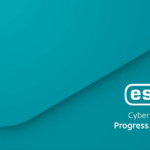
Protecting your financial interests is of the utmost importance when it comes to civil lawsuits. Whether you are the plaintiff or the defendant, the case’s outcome can significantly impact your financial well-being. This article will outline tips and strategies for protecting your financial interests in court.
Hiring an experienced attorney:
One of the most important steps in protecting your financial interests is hiring experienced financial services law firms. An attorney familiar with the legal system and the specific laws related to your case can provide valuable guidance and advice. They can also help you navigate the complex legal process and negotiate a settlement in your best interests.
Documenting your financial situation:
It’s important to document your financial situation as accurately and completely as possible. This includes providing information about your income, assets, and debts. This information can be used to determine damages or compensation in case of a settlement or judgment. Additionally, if you are the defendant, your financial situation may be used to determine the amount of any fines or penalties that may be imposed.
Preparing a budget:
Preparing a budget can be a useful tool for both plaintiffs and defendants. A budget can help you understand your financial situation and identify areas where you can make adjustments to accommodate a settlement or judgment. For example, if you are the defendant, a budget can help you understand how much you can afford to pay in damages or fines.
Negotiating a settlement:
Many civil lawsuits are settled out of court, and it’s important to consider the settlement option. A settlement can save time and money and can be a way to protect your financial interests. An experienced attorney can help you understand the terms of a settlement agreement and negotiate a settlement that is in your best interests.
Managing your emotions:
Managing your emotions can be important when protecting your financial interests in court. It’s important to keep a level head and avoid making decisions based on emotions. This can help you avoid making mistakes that could harm your case and can help you focus on the financial aspects of the case.
Considering alternative dispute resolution:
Alternative dispute resolution (ADR) methods such as mediation or arbitration can be a way to resolve a dispute without going to court. ADR methods can be less time-consuming and less expensive than a traditional trial, and they can be a way to protect your financial interests.




